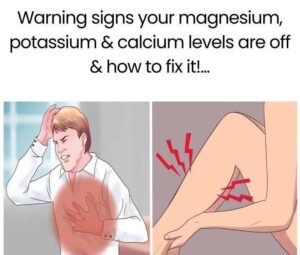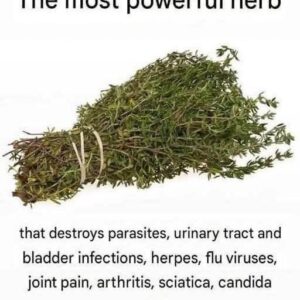Unexplained fatigue, numb muscles, sluggish concentration…
What if it’s simply a potassium deficiency?
This often-overlooked mineral plays an essential role in the functioning of our bodies.

Although present in our diet, it remains one of the nutrients we consume in insufficient quantities.
Why is it so important, and how can you make sure you’re getting enough every day? Useful insights and practical advice.
What does potassium really do in our body?
Potassium acts as a discreet but essential regulator . It helps maintain normal blood pressure , stabilizes heart rate , and facilitates muscle contractions . Without it, our muscles (including the heart) would be in a poor state. But that’s not all: it participates in the transmission of nerve signals , regulates fluids in the body , and is involved in energy management .
Think of it as a trusted assistant for your cells. It helps them absorb nutrients better , produce energy efficiently , and communicate clearly with the brain .
Potassium deficiency: how to recognize it?
The misleading thing about potassium deficiency is that the signs are often subtle. This is called hypokalemia . Symptoms include persistent fatigue, cramps, diffuse pain, and digestive problems.
In more severe cases, it can get worse: spasms , numbness , heart rhythm disturbances … These are signs that should never be ignored. The causes? An unbalanced diet , excessive losses (vomiting, diarrhea, profuse sweating) or certain medications .
How much potassium per day? And where can you find it?
The goal? Around 4,700 mg of potassium per day for an adult . Don’t panic, there’s no need to weigh everything! A varied diet rich in unprocessed foods is usually enough.
Here are the foods rich in potassium to favor in your basket:
- Green leaves : spinach, chard, watercress
- Tubers : potatoes (with skin!), sweet potatoes
- Legumes : chickpeas, white beans, lentils
- Fruits : bananas, melons, apricots, plums, peaches
- Nuts : walnuts, almonds, pine nuts
A good habit ? Create a colorful plate with two portions of vegetables and three pieces of fruit per day . As a snack, a handful of almonds or a homemade smoothie, and you’re good to go.
Too much potassium, is it possible?
Yes! Although it is rare in healthy people , an excess of it – called hyperkalemia – can be harmful , especially for people with kidney problems. It is generally linked to certain pathologies or uncontrolled supplementation . The signs? Tingling , muscle weakness , shortness of breath , or even heart problems .
Bottom line : Avoid self-medication and always seek professional advice before taking supplements.
The right reflexes for filling up on potassium naturally
No need to change everything. Here are some simple steps to take:
-
- Favor minimally processed foods
- Cook fresh produce whenever possible
- Prefer steam cooking to preserve minerals
- Limit foods that are too salty or too sweet
- Hydrate yourself regularly
And most importantly, stay active : physical activity helps your body use nutrients better.
Potassium, an ally at all ages
From childhood to adulthood, potassium contributes to growth , proper brain function , physical fitness and bone strength . It also helps to better manage stress and promotes quality sleep . In short, a true daily partner to adopt now.
A small adjustment to your diet can really improve your daily well-being.





